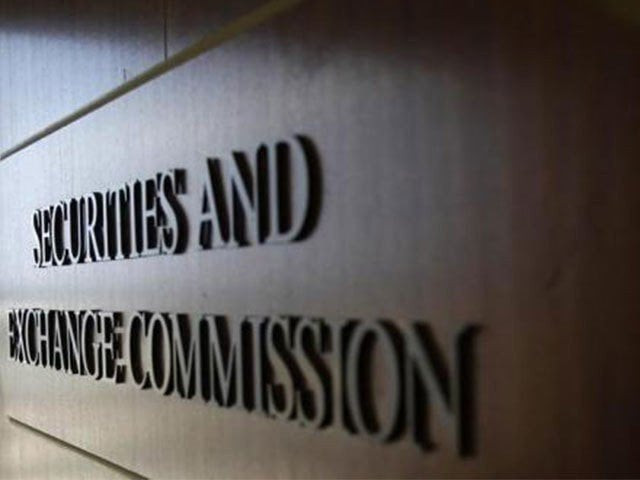SECP issues more guidelines to combat money laundering
Directs corporate sector to be vigilant while dealing with politically exposed persons

A major focus of the NEC meeting was on effectively tackling the proscribed organisations, which remained a concern for the FATF and one of the reasons for placing Pakistan on the grey list. PHOTO: FILE
The corporate-sector regulator has issued guidelines to supplement the regulations by elaborating on general requirements of the legislation to help the sector that it regulates, according to an announcement by the SECP.
SECP issues new guidelines to stop money laundering
It was the third set of guidelines that the SECP issued in the past one week as the country prepares to meet legal and regulatory requirements of the Financial Action Task Force - the global inter-governmental body working to curb money laundering and terrorism financing.
The guidelines were issued on the day the National Executive Committee (NEC) on Anti-Money Laundering met in the Q-Block. The huddle was attended by civil government departments and intelligence agencies. Finance Minister Asad Umar chaired the statutory body meeting.
One of the focuses of the NEC meeting was to effectively tackle proscribed organisations, which remained a concern for the FATF and one of the reasons for placing Pakistan on the grey list, said officials in the finance ministry.
In the past, the military and civilian leadership had different strategies to deal with at least four proscribed organisations, they added. The NEC is a high-level body established to oversee both policy and implementation matters of the Anti-Money Laundering (AML) and Counter Financing of Terrorism (CFT) regime.
The purpose of the meeting was to discuss and review progress in AML/CFT areas of relevant stakeholders, especially implementation status of the FATF Action Plan, according to an official handout of the finance ministry. It added different stakeholders presented progress in their respective areas on the action plan and other AML/CFT areas.
The finance minister emphasised the need for increasing efforts to comply with the AML/CFT regime according to international standards.
SECP rolls out new anti-money laundering regulations in line with FATF recommendations
The FATF Action Plan may be seen as an opportunity rather than a challenge and the plan would set directions for a robust AML/CFT regime in Pakistan as per international standards, said Umar. The minister emphasised the need to work hard and achieve the desired goal well before the agreed timelines as it was in the interest of the country.
The SECP said in order to maintain the integrity of its regulated financial sector in respect of preventing and combating money laundering and terrorism financing, it notified the SECP’s Anti Money Laundering and Countering Financing of Terrorism Regulations 2018.
The guidelines require the regulated sector and persons to shift from one size fits all to a risk-based approach while adopting the AML and CFT risk assessment and compliance framework.
The risk-based approach requires proper identification and assessment of money laundering and terrorism financing risks in relation to customers; country or geographic area; products, services and transactions; and delivery channels: designing and implementing policies, controls and procedures to manage.
The SECP directed that under the risk-based approach the regulated sector was required to take enhanced measures where risks are higher for example high-risk countries, politically exposed persons (PEPs), legal persons or legal arrangement; cross-border correspondent relationships.
It has cited the FATF guidelines 11 and 12 that deal with Designated Non-Financial Businesses and Professions that deal with politically exposed persons, lawyers dealing with buying and selling of real estate and involved in bank management. These regulations are also applicable to dealers that deal in precious metals and precious stones.
The guidelines also focus on the enquiries on unusual transaction and subsequent reporting of suspicious transactions along with the sanctions that are applicable. They require the regulated entities not to form business relationship with the individuals or entities and their associates that are either, sanctioned under the Security Council resolutions adopted by Pakistan or proscribed under the Anti-Terrorism Act 1997.
The SECP has barred its regulated entities from applying simplified measures whenever there is suspicion of money laundering and terrorism financing. Also the regulated persons should update risk assessment every 12 to 18 months and establish risk tolerance and the extent of AML/CFT controls should depend on nature, scale and complexity of the RPs risk factors, volume and size of transactions, it added. It has also made it mandatory that the board of directors will oversee the policies of risk, risk management and compliance.
There should adequate systems, internal policies, procedures and controls, customer due diligence measures, record keeping procedures; group-wide AML/CFT programmes; screening procedures and employee training programme along with policies and procedures to prevent the misuse of technological development in ML/TF schemes, directed the SECP.
Published in The Express Tribune, September 8th, 2018.
Like Business on Facebook, follow @TribuneBiz on Twitter to stay informed and join in the conversation.











1724319076-0/Untitled-design-(5)1724319076-0-208x130.webp)






COMMENTS
Comments are moderated and generally will be posted if they are on-topic and not abusive.
For more information, please see our Comments FAQ